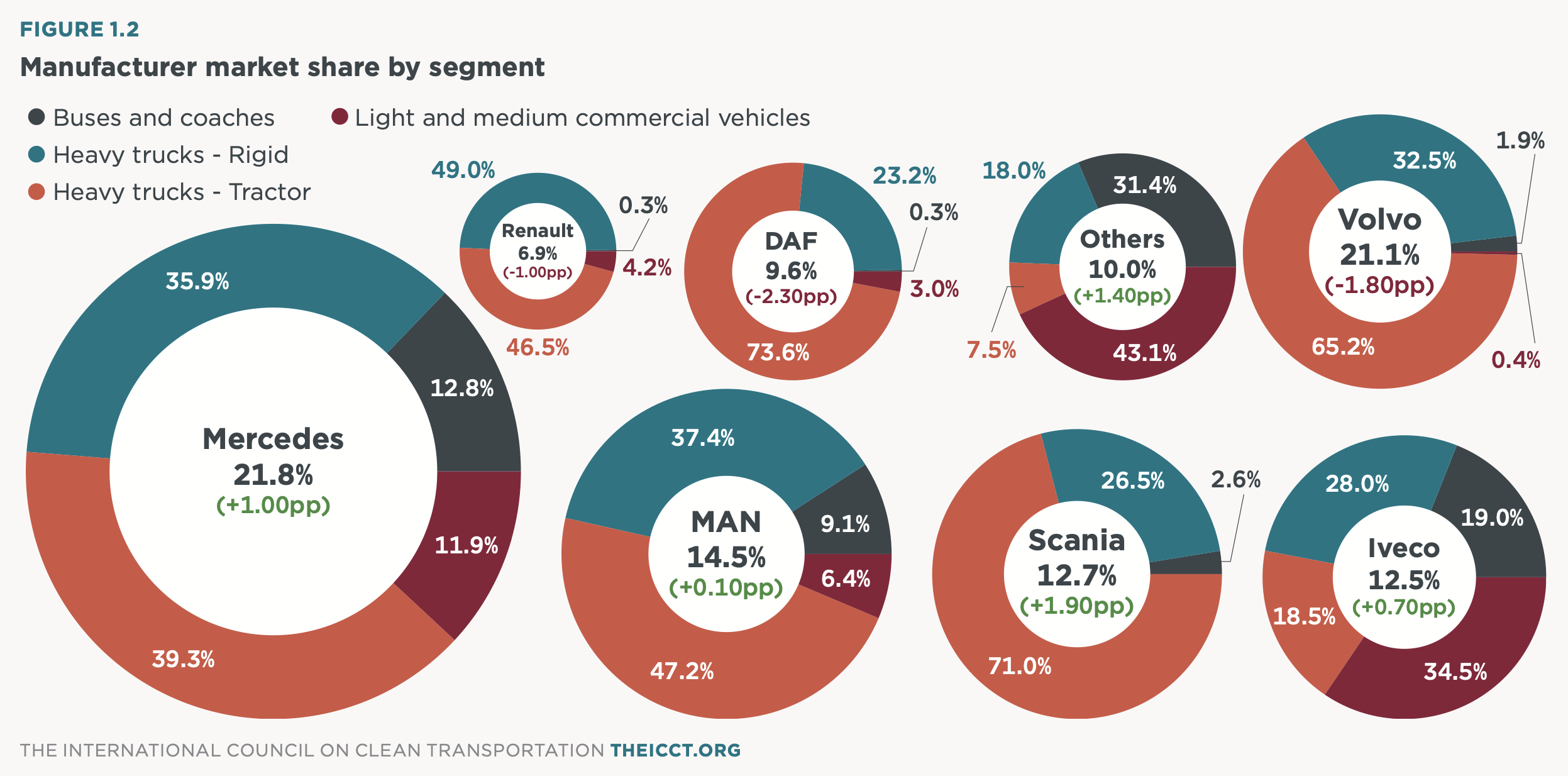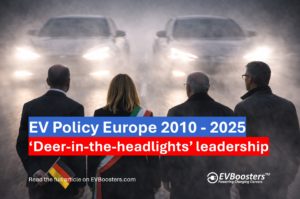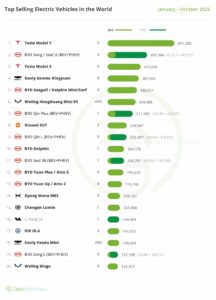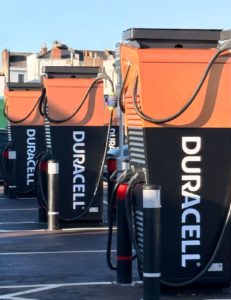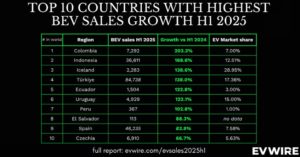Mercedes-Benz Dominates Market Share
Mercedes-Benz solidified its position as the leading manufacturer in the European HDV market. In the first quarter of 2024, Mercedes-Benz accounted for 22% of total HDV sales, up by 1 percentage point from the same period last year. This growth is reflective of the brand’s robust performance in both conventional and zero-emission segments.
Following Mercedes-Benz, MAN secured 15% of the market share, marking a slight increase, while Scania captured 13%, up by 2 percentage points. Iveco also saw a modest increase to 13%, whereas Volvo experienced a slight decline to 12%. DAF and Renault completed the top seven with 10% and 7% market shares, respectively. Collectively, these brands represented 90% of all HDV sales in the first quarter of 2024.
Zero-Emission Heavy Trucks: A Growing Trend
Zero-emission heavy trucks have seen a significant uptick in their market share. From just 0.6% in the first quarter of 2023, ZEV heavy trucks now represent 1.1% of the market. Germany led this segment, accounting for 41% of all zero-emission heavy truck sales within the EU-27, with the Netherlands following at 17%.
Volvo Trucks emerged as a dominant force in the zero-emission heavy truck market, increasing its share from 44% to 54% year-on-year. The company’s FH-Series (4×2) and FM Series (4×2) battery-electric trucks were particularly popular, contributing significantly to Volvo’s leadership in this segment. Mercedes-Benz also made significant strides, boosting its zero-emission heavy truck market share from 8% to 15%.
Light and Medium Commercial Vehicles: Ford Leads Despite Shrinking Share
In the light and medium commercial vehicle segment, Ford maintained its lead in the zero-emission market, despite a reduction in market share from over 50% to 40%. Fiat, on the other hand, more than doubled its share to 30%, reflecting a dynamic shift within this segment. Germany dominated the sales of zero-emission light and medium commercial vehicles, increasing its share from 28% to 67%.
Buses and Coaches: Electrification on the Rise
The bus and coach sector also showed a promising increase in zero-emission vehicle adoption. Zero-emission buses accounted for 12% of total bus sales, with 32% of city buses being battery-electric. Countries like Denmark, the Netherlands, and Ireland saw significant shifts towards electric city buses, although Ireland saw an increase in diesel bus purchases.
Mercedes-Benz once again stood out, increasing its share in the zero-emission bus market from approximately 5% to nearly 15%. This surge underscores the company’s expanding influence across various segments of the ZEV market.
Conclusion
The first quarter of 2024 has set a promising precedent for the future of zero-emission heavy-duty vehicles in Europe. While traditional HDV sales have declined, the rise of zero-emission vehicles across multiple segments highlights a significant shift towards sustainable transportation. Manufacturers like Mercedes-Benz and Volvo are at the forefront of this transition, leading the charge in both market share and technological innovation. As the European Union continues to support this shift with various subsidy programmes, the landscape of heavy-duty transportation is poised for further transformation.
Source: The ICCT

